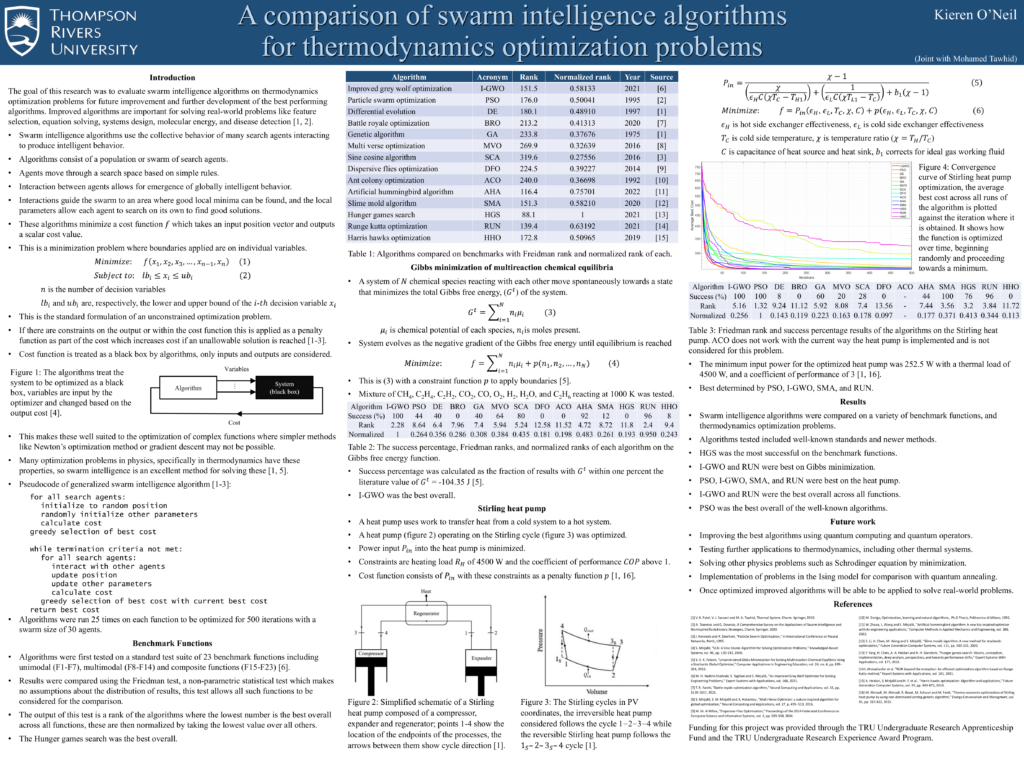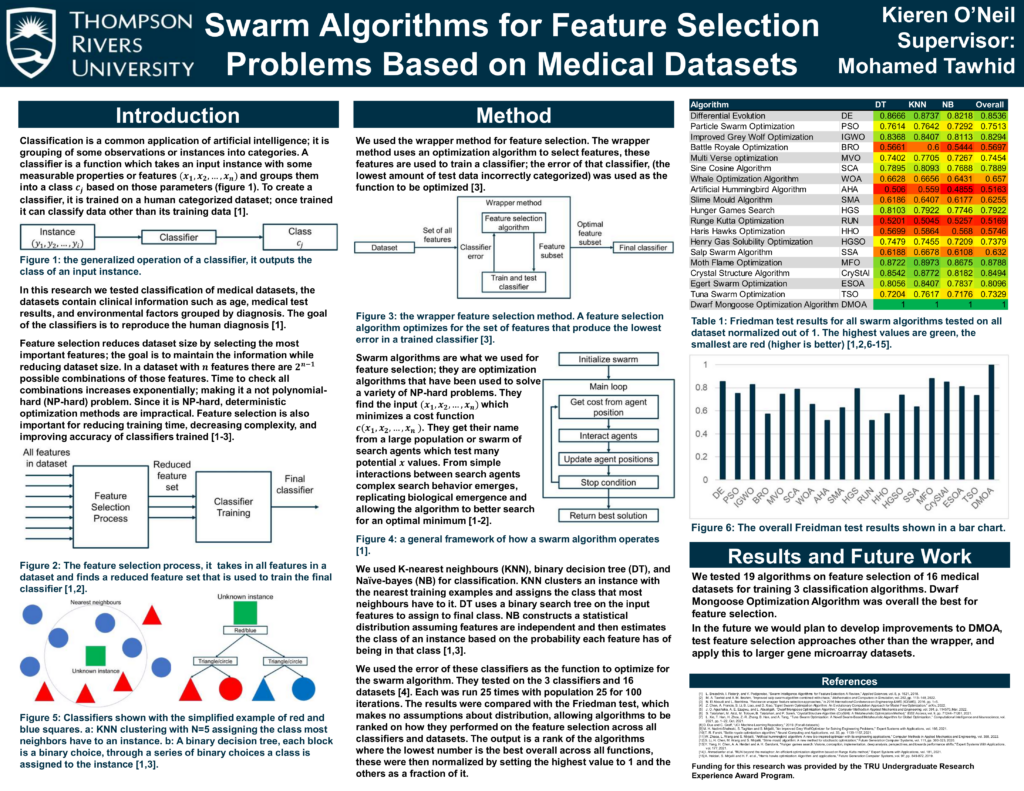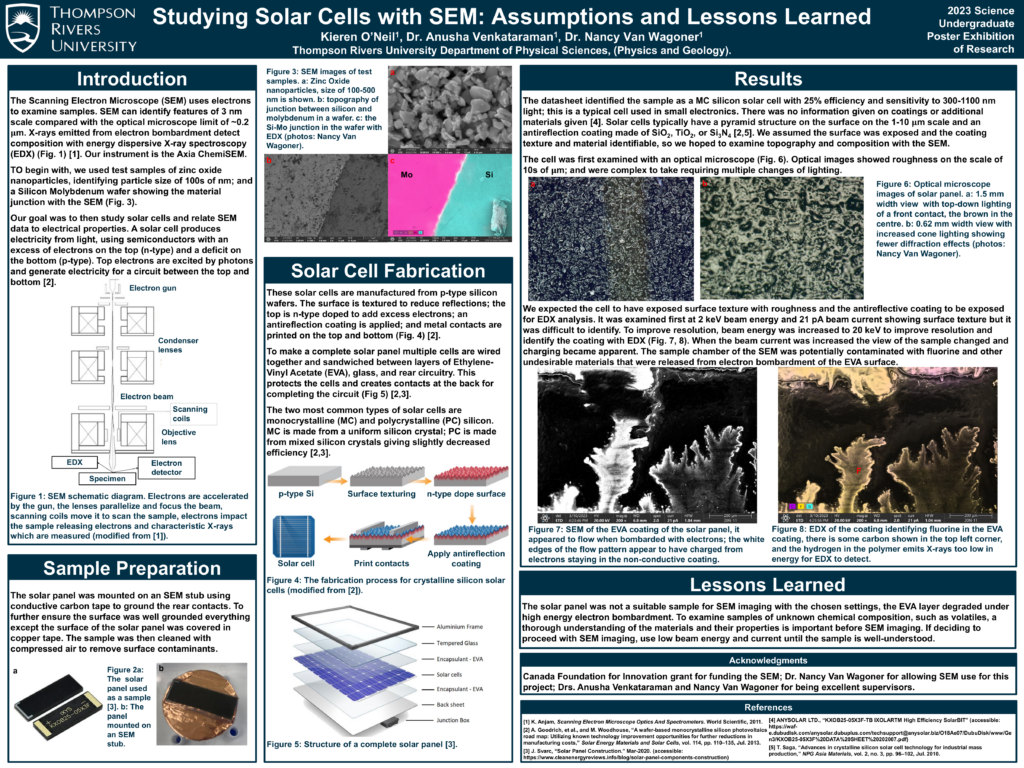Understanding the Research Process
- Self-authored research proposal, project outline, or artist statement
- Research methods courses taken
- Research proposal for UREAP and USRA.
- STAT 2230, Probability and Statistics for Engineers
- PHYS 3080 Optics, upper level lab course teaching experiment design, and research methodology for physics experiments.
- PHYS 3080 final project, index matching of pyrex in mineral oil
- PHYS 3090 Analog Electronics, upper level lab course teaching experiment design, and research methodology for physics experiments
- PHYS 3090 final project, inverted pendulum control
- Online training for Digital Research Alliance of Canada (DRA) high performance computing.
- Training in non-parametric statistical methods for evaluating AI effectiveness
Evaluating Existing Research
- Self-authored environmental scan
- Completion of a research methods course
- Self-authored literature review, a report, paper, or presentation that includes a significant discussion of secondary sources (any reference that is used in a student’s work that was not written or created by the student themselves is considered a secondary source)
- Review component for research, looking at existing swarm algorithms
- PHYS 3000, Quantum Computing, final essay,
- PHYS 3400, Principles and Applications of Quantum Mechanics I, final essay, interpretations of quantum mechanics. A reveiw of the properties of quantum mechanics, why they need interpreting, and an overview of several interpretations.
- PHYS 4140, Nuclear Physics, final poster, an overview of the _______ experiment which measured the effects of ______ interactions on nuclear structure.
- PHYS 3500, Special Topics in Physics: Particle Physics, final essay, an overview of the ALPHA-G experiment which measured the effects of gravity on antimatter.
Applying Research Methods
- Self-authored or co-authored report, paper or a summary that outlines the research method employed while conducting research.
- This can include, but is not limited to, methods such as interviews; focus groups; forms of mapping or visualization; arts-based methods; case studies; surveys; lab studies and field work involving descriptive, correlational, experimental, and causal-comparative and quasi-experimental methodologies.
- Utilization of Digital Research Alliance CEDAR to run simulations, develop models, and apply statistics to determine results.
Analyzing and Drawing Conclusions
- Self-authored or co-authored research results and discussions provided via written reports, articles, recordings, performances, presentations, exhibitions, or other modalities
- Final projects in 3080 and 3090
- Laser CT if I write it fast
- Same three as knowledge mobilization
Engaging in Knowledge Mobilization
- Presentations such as poster and conference sessions, honor’s defenses, exhibitions, or performance
- Publication or co-publication of articles, reviews, studies, or academic notes in journals or any venue recognized by the student’s discipline; report submitted to a formal academic or professional body; a juried performance or an exhibition
- Other modes of dissemination by students may include podcasts, YouTube videos, blogs, webinars, and infographics/mapping.
Maybe toss the posters on other pages

2022 American Physical Society Northwest Section Meeting poster.

2023 TRU Undergraduate Research Conference poster.

2023 Science Undergraduate Poster Exhibition of Research poster.